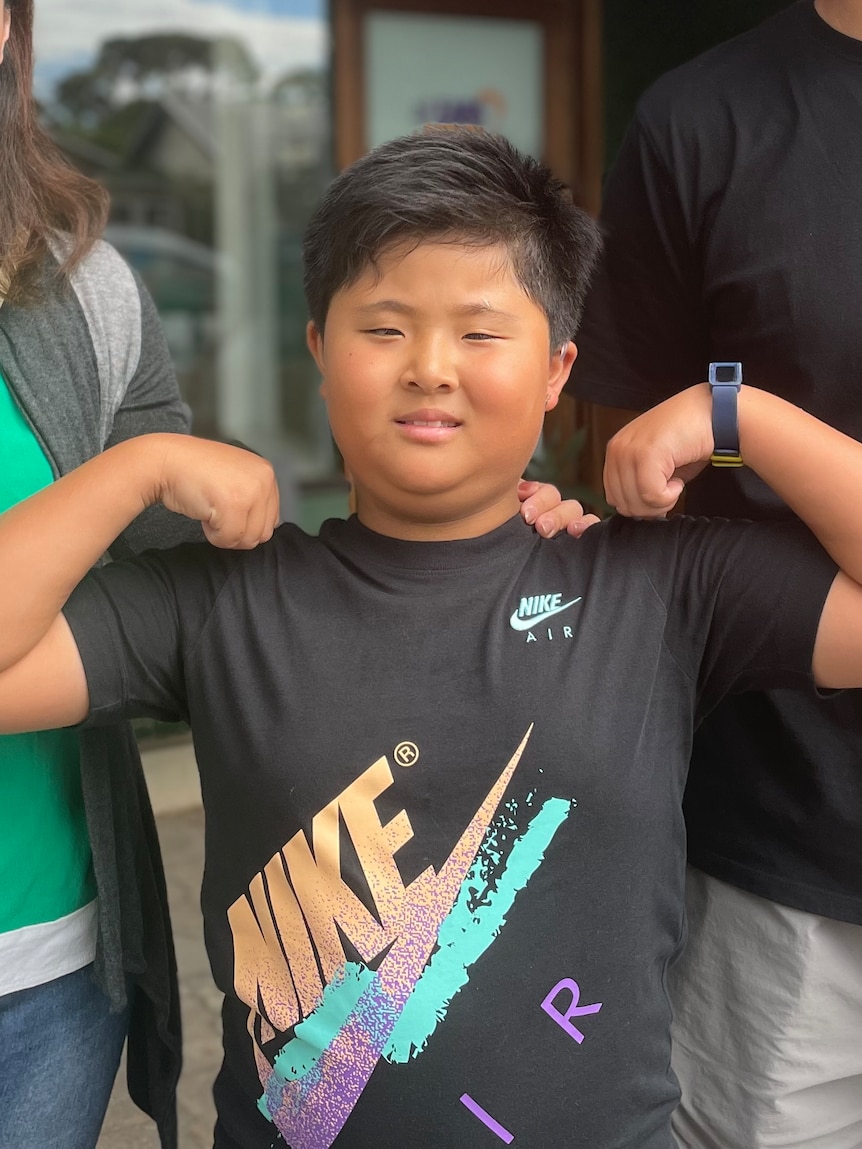A nine-year-old boy has described how he struggled at school for years after the Women’s and Children’s Hospital incorrectly programmed his cochlear implant.
Key points:
- Jun Ting Song hears his family sing him Happy Birthday for the first time in his life
- He says his implant had impeded his ability to learn at school and was like a “flat battery”
- The opposition says the government should contact anyone who received an implant from the hospital over the past 10 years
Jun Ting Song said he heard his family and friends sing him Happy Birthday for the first time in his life on Saturday after his implant was reprogrammed.
The nine-year-old is one of at least 30 children whose cochlear implants were not programmed properly, which is expected to cause lifelong development problems.
“When I had the cochlear implant, I had a lot of struggling [sic] in school, because it wouldn’t work and it was like a flat battery and I didn’t have the opportunity to learn,” he said. “I can hear well now … I feel good.”
Opposition leader David Speirs said the state government needs to urgently contact anyone who has had a cochlear implant installed at the Women’s and Children’s Hospital over the past 10 years.
“We are asking for the Malinauskas government to immediately instruct clinicians to get on the front foot here and send that letter out this week,” he said.
“This situation is heartbreaking. We have had children in this state — because of mistakes that have been made at the Women’s and Children’s Hospital — suffer serious impacts that might be lifelong.”
Mr Speirs said crucial weeks had been lost to help the affected children since the government was informed of the problem in November last year.
Opposition health spokesperson Ashton Hurn said there was “absolutely no time to waste”.
“I have been inundated with families who have only heard about this after brave people have come forward to share their experiences,” Mr Hurn said.
The cause of the problem is still unclear, but the South Australian government has committed to an independent external review led by interstate experts.
‘Can’t get those missed years of hearing back’
South Australian Health Minister Chris Picton said the Women’s and Children’s Hospital was in the process of contacting people who have been involved in the implant program over the past five years.
He said the external review would look at how the bungle was allowed to happen, identify when the issue actually started and how for how long it has been happening.
“I think clearly we have to go back further, to make sure that everybody as possible can be picked up as part of this process,” Mr Picton said.
“We have to make sure that every possible child who could be impacted is identified and can get the support that they need.”
Another parent wrote to Mr Picton in October last year, describing how time was wasted when health workers couldn’t get to the bottom of why their six-year-old wasn’t making progress.
“I guess the impact for our son is clear in a way. He can’t get those missed years of hearing back,” the parent said in their letter.
“This delay will have social, educational, employment and, perhaps, mental health issues for him for years to come.
“It is basically just heartbreaking for a family to make the massive ethical, social and emotional choice to put your child through major surgery and then, for what seems to be human error, their life choices have been limited, for life.”
Since his device was reprogrammed, Jun Ting Song said, the impact had been immediate.
“[School] is better now because I have an interpreter … I can watch and I can listen about what they are saying and I can learn through the sign language and the interpreter as well.”




